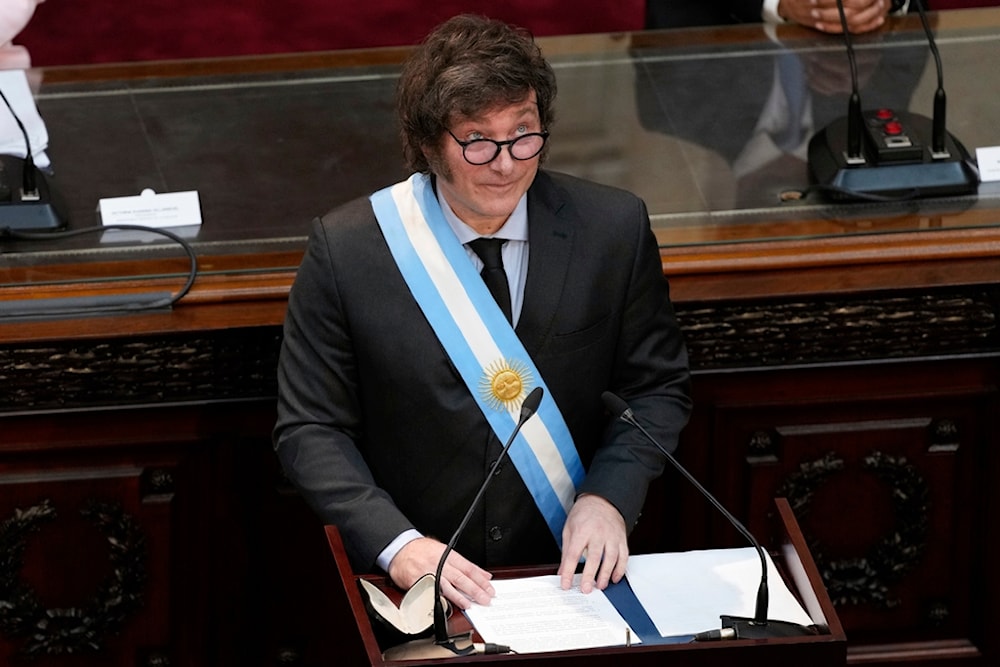Argentina's Senate rejects Milei's deregulation package once again
In a majority vote, Javier Milei's deregulation package aimed at economic reform by raising rent and removing subsidies has been rejected.
-

President Javier Milei addresses lawmakers during the opening legislative session in Buenos Aires, Argentina, on Friday, March 1, 2024. (AP)
Argentinian President Javier Milei's colossal deregulation package was rejected by the Senate, making it the second governmental repudiation that obstructs his economic reform plans.
Reportedly, the package, coined an "anarcho-capitalist" reform, was rejected in a 42 to 25 vote, including four abstentions.
However, legislations only rely on the approval of a singular chamber, so the package could still be approved and passed by the lower house or Chamber of Deputies. If both chambers reject it, then no legislation would be decreed.
The decree itself aims to lay the foundations for increased privatization, uncap rent demands and prices of essentials, and loosen labor laws, among some other 300 standards.
Among the two other mega-decrees Milei is recommending to achieve economic reform is the previously rejected legislation which encompasses foundational changes to the economy, politics, and private matters. The decree, called the "Omnibus Law", is being rewritten and will be raised again for another vote.
The last of Milei's reforms is the devaluation of the peso against the greenback by half, along with de-subsidizing transportation services, energy production, and impeding infrastructure projects.
Argentina's oil provinces threaten Milei to cut supply
Milei's incumbency came with a strict collapse in economic sustenance amid the policies the president adopted.
Just two weeks ago, conflict erupted as a result of his confiscation of 13.5 billion pesos ($15.3 million) in monthly tax revenue transfers from the key crude-producing province of Chubut, according to its governor, Ignacio Torres.
Torres was backed by other governors, and warned that if Milei proceeded with his decision, 600,000 people would be affected in Chubut as it “impacts on their right to education, health, security, and development.”
The situation brought forth doubts among economists regarding Argentina's ability to compromise between its oil production and supplies that affect the national and international markets, as the country ranks 39th among oil-producing countries, and the 20th largest natural gas exporter.
After the fallout in oil-producing provinces, market analyst Artemio Lopez said Milei "miscalculated" the consequences of his policies. He said interparliamentary conflicts are entirely different than those with governors, noting that most of them got higher vote percentages than he did in the last elections.

 3 Min Read
3 Min Read








